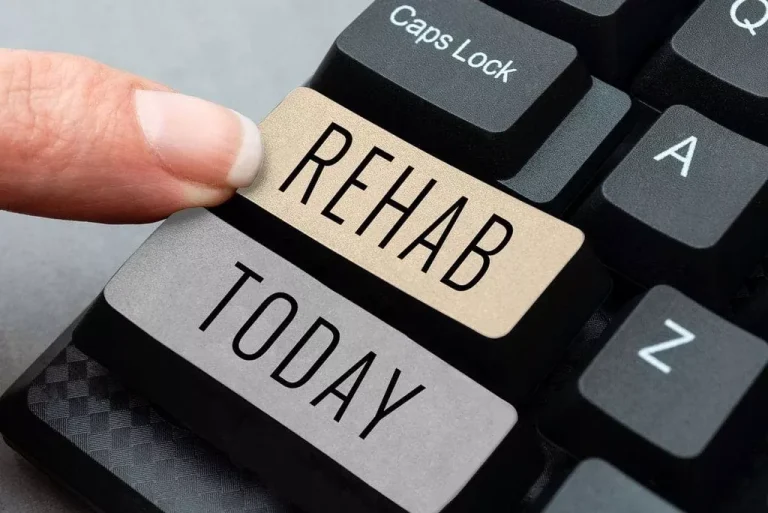
These homes serve as a bridge between an inpatient facility and the real world. Once you leave the structured environment of an inpatient rehab, jumping back into your old life can be challenging. This is where sober living homes come into play, providing a supportive community environment conducive to recovery. Many sober living homes are not government-funded and are self-supporting or operated by charities or addiction treatment centers. Some recovery houses accept donations of clothing, household goods, and other items for use by residents or to sell to make money to offset the facility’s costs. An example is the Substance Abuse and Mental Health Services Administration (SAMHSA), which offers grants to organizations that provide addiction treatment and recovery services.
- Those who live in these houses rent rooms indefinitely and live a life in accordance with their responsibilities, like work and school.
- Post hoc sensitivity analyses adjusting for whether individuals were missing data on these variables did not produce substantively different findings, but future studies should pay careful attention to data collection procedures.
- I’ve shared spaces with surgeons and I’ve shared rooms with jailbirds (both of whom know how to fix a broken nose, just in different ways).
- Sober living homes are structured, safe and substance-free living environments for individuals in recovery.
- This deliberate shift helps bridge the gap between the supportive environment of the home and the complexities of the outside world.
Is there financial support available for sober living houses?
There is a continuum of care in substance abuse treatment that includes sober living. Anyone who is being discharged successfully from an inpatient rehab setting should consider transitioning to a sober living home. Sober living is just like it sounds, a place to stay where you’ll have a supportive community and can start your new life free from alcohol or other drugs. Residents in sober-living homes commit to abstaining from substance use while participating in outpatient programming or after completing https://ecosoberhouse.com/ inpatient drug rehab. The focus is on building a substance-free life, enhancing life skills, and preventing relapse.
Sober Living Homes Versus Halfway Houses

Despite a growing evidence base for recovery housing, relatively little research has focused on how recovery housing may benefit individuals accessing outpatient substance use treatment. Indeed, individuals attending the focus group acknowledged that they needed additional sober house supports that could be provided in a sober living environment. In addition to providing needed support to residents, staying in recovery housing also provided respite from worry and reassurance to family members. For women with caretaking responsibilities living in the structured sober living, respite might also mean providing them time to focus solely on meeting their own recovery needs.
- People who live in sober homes report that they are non-judgmental and safe spaces where they can focus on their continued recovery.
- Most sober living homes are privately run and not government-funded, but financing options may be available.
- The services, rent, rules and living conditions at sober living homes vary from place to place.
- It also provides a therapeutic space where you can get support from peers who are also recovering from substance abuse.
Xanax Abuse: Warning Signs & Symptoms Of Xanax Addiction And Abuse

By surrounding yourself with a supportive community and maintaining accountability, you can develop the skills and habits needed to succeed in life beyond addiction. In general, individuals with a history of vagrancy, incarceration or inadequate social support are at high risk of relapse. But sober living homes can be beneficial for anyone in recovery who does not have a supportive, substance-free environment to go home to. Numerous studies have shown that most people who live in sober homes after attending treatment have low rates of relapse and are able to live productive lives. Sober living homes are realistic, cost-effective living environmentsr for people in recovery.
- People who have undergone addiction treatment in rehab centers often struggle to stay sober as they adjust to the real world.
- Some examples of additional services may include transportation to appointments, recovery coaching, meals and gym memberships.
- Table 1 also displays, gender, age, and all measures of service need, service use, and outcomes by recovery housing status.
- Studies that have examined predictors of dropout have largely focused on client-level factors rather than program or treatment characteristics (Brorson et al., 2013).
- As you have learned, they provide a supportive environment for individuals who have completed substance abuse treatment and are seeking ongoing support in maintaining sobriety.
- Individuals enrolled in day treatment or IOP typically transition into the program from a higher level of SUD care (residential or day treatment) or, due to lower SUD severity at the onset, “step in” to the program as the first level of care.
Drug Rehab for Teens: How it Can Help and What to Expect

Sober living homes typically operate according to established structures and guidelines— including rules for residents, testing requirements and monitoring—though overriding governance, licensure and accreditation rules vary by state. While at an SLH, residents may be able to resume other aspects of their lives before recovery, such as work or family obligations. Once signed up, the business would then bill the state for services it never provided. The lawsuit alleges clients would end up more addicted than when they came in. Others would die in the sober living homes, others would go missing and some are still missing today. While these homes have a welcoming, home-like atmosphere, they also maintain clear rules to ensure accountability.
“We want accountability,” said Reva Stewart, founder of the Phoenix-based Turtle Island Women Warriors, a group that helps people victimized by the schemes. “People are still missing. And we have so many John Does and Jane Does who were thrown out of these (sober living) homes without identification.” Always seek the advice of a physician or other qualified health provider with any questions you may have regarding a medical condition. Never disregard professional medical advice or delay in seeking it because of something you have read on this website. This website does not recommend or endorse any specific tests, physicians, products, procedures, opinions, or other information that may be mentioned on the Site.

You need somewhere safe you can go after treatment, a place where you’ll be free of triggers and surrounded by social support. Some homes require signing out when leaving the home and signing in when returning. Getting a job or volunteering may also be part of some sober living programs. Some facilities require a minimum number of days of sobriety from substance abuse, but many will work with you to determine if you’re a good fit. SLHs have been shown to improve recovery outcomes when utilized in conjunction with 12-step programs.8 Residences providing a highly structured schedule of activities tend to dramatically improve drug addiction the likelihood of long-term sobriety.
Understanding and adhering to these rules and structures are foundational to the success experienced in these homes. They not only keep the environment safe for everyone but also teach valuable life skills that are essential in your journey towards a fulfilling, sober life. In the journey towards sobriety, the ambiance and the support system around you play pivotal roles. Sober living homes understand this fundamental need and strive to provide an environment that not only supports but enhances your recovery process. All sober houses have a zero-tolerance policy regarding the use of drugs or alcohol. Some recovery houses insist on random drug testing to ensure residents remain sober.


Leave a Reply